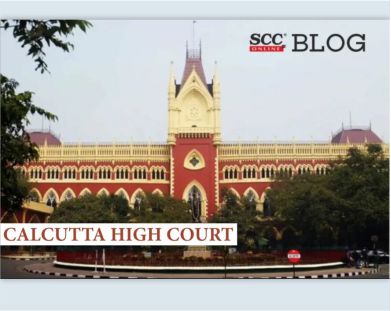Calcutta High Court | While deciding a petition under S. 482 of the Code of Criminal Procedure for quashing a criminal proceeding under Ss. 376, 417, 420, 406, 506 and 34 of the Penal Code, 1860, Rai Chattopadhyay*, J. quashes the criminal proceeding by making distinction between false promise of marriage and breach of promise to marry.
In the present matter, the petitioner had developed a romantic relationship with the defacto-complainant to the extent of being physically involved with her on the false promise to marry in the near future. The defacto-complainant was induced to give consent to such physical relationship under the misconception of fact of her marriage with the petitioner. The defacto complainant lodged a FIR alleging that the offences of rape, cheating, criminal breach of trust and criminal intimidation was committed against her by the petitioner. A criminal proceeding, G.R Case No 4671 of 2021 is pending before the Court of Additional Chief Judicial Magistrate, Siliguri under Ss. 376, 417, 420, 406, 506 and 34 IPC. The petitioner filed a petition under S. 482 CrPC to quash the said criminal proceeding against him.
The petitioner contended that he wanted to marry defacto complainant but later found out she was already married; therefore, he could not lawfully marry a married lady. The petitioner contended that he had no mala-fide intention or mens rea to commit the alleged crime at any point of time and it was the circumstances which led him to withdraw his consent from such relationship.
The Court observed that there is a difference between giving a false promise and committing breach of promise by the accused. The Court observed that in case of false promise to marry, right from beginning the accused does not have any intention to marry the prosecutrix but only want to satisfy his lust but in case of breach of promise to marry, one cannot deny a possibility that the accused might have given a promise with all seriousness to marry her and later might have encountered certain circumstances unforeseen or the circumstances beyond his control which prevented him to fulfill his promise.
The Court observed that the law is well settled regarding false promise to marry and stated that
“To constitute an offence, the women’s consent to the sexual activities in a relationship should have been procured by misrepresentation of fact and falsely promising to marry her. This element of falsehood should be apparent to be present from the very inception of their relationship. Only then a ‘promise to marry’ would be construed to be an element of ‘misconception of fact’ so as to induce the lady to give consent to the sexual proposal of the accused person. Otherwise if it is a promise by the accused person at the beginning and later on due to any unforeseen and compelling circumstances he has not been able to keep up the said promise, that would not amount to be a false promise leading to misconception as regards the facts preceding grant of consent and an offence in the eyes of law.”
The Court observed that taking into account the fact that the defacto-complainant was married and her giving consent to the physical relationship with the petitioner on the promise of marriage which later turn out to be fallacious and unfounded is only far-fetched and baseless.
In the light of facts and circumstances of the case, argument advanced and authorities cited, the Court held that the FIR and the other materials in this case have not disclosed any cognizable offence against the petitioner and continuance of the criminal proceeding would only amount to be an abuse of the process of Court as well of law. Allowing the petition, the Court quashed and set aside the FIR and criminal proceedings.
[Dipak Banki v. State of W.B.,2023 SCC OnLine Cal 320, order dated 07-02-2023]
*Judgment by Justice Rai Chattopadhyay.
Advocates who appeared in this case :
Mr. Arjun Chowdhury and Ms. Pratusha Dutta Chowdhury, Counsel for the Petitioner;
Ms. Aditi Shankar Chakraborty, Mr. Nilay Chakraborty and Mr. Kallol Nag, Counsel for the Respondent/State.
*Ritu Singh, Editorial Assistant has put this report together.








Kindly provide a source of the Order Copy or correct case details.
Dipak Banki v. State of W.B., 2023 SCC OnLine Cal 320
http://www.scconline.com/DocumentLink/gur7zT1m
Case no. Doesn’t match..Pls chk ????????